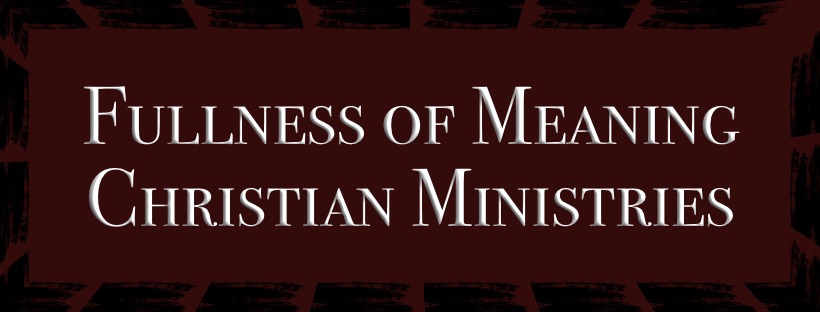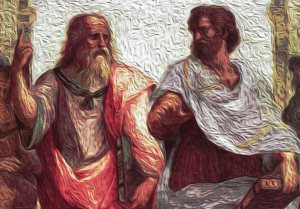The Classical Greek Paideia was originally the classical education for the early Greek youth. The central Philosophers such as Plato and Aristotle comprised a large component of this Paideia. Language, Logic, and Rhetoric were the primers by which all further study into the sciences could ‘rationally’ be obtained. The language by which these primers functioned was a result of Platonic and Aristotelian reasoning and cultural bearing.
Therefore, any word used in the Paideia (language, logic, rhetors) was *refined*, delineated, syllogistically filtered, deduced, re-examined, etc. The words found in the Paideia were therefore known in the sense by which their Greek “glossary” used its “howness”. It is no wonder that the word, “Disciple”, in the Platonic, Aristotelian, …and, yes, Biblical New Testament language was called the “Mathetikon” or “mathematician (of the Words)”.
To add, this “howness” would have been used in its Platonic and Aristotelian sense. Might I add here that I do not in any way disenfranchise Plato and Aristotle from Greek culture, rather, they simply are the most notable fountainheads of Greek culture.
The New Testament Greek language must be understood from its roots founded in The Paideia of the ancient pagan (amoral) Greeks. Therefore, the implementation of any word used in the New Testament was based centrally upon the verbal bank of Plato and Aristotle. Yes, there are other ‘sources’ but the well read Philosophers, Plato and Aristotle, were baptized by their Greek heritage and contemporaries. That is, Plato and Aristotle were the “result” of Greek Heritage…therefore, the consequential “Parents” of classical Greek scholasticism.
As a linguist, it is of most import to know the etymologies, morphological rules, socio-linguistic phenomena, etc. of any given language to fully comprehend its worth. It shouldn’t be a hard jump to understand that Alexander the Greek, the Hellenizer of Palestine brought with him the Greek culture by which Palestine was baptized into. Moreover, Alexander’s teacher was the renowned Aristotle himself!!! Straight from the horse’s mouth to the One who would order a new language be spoken.
Alexander, for sure, was the leopard in Daniel’s prophecy and a necessity for the spread of Christianity via Greek language and reason to a Hellenized pagan Europe.
With all that I have said, I conclude with this: there is consensus and concentrated agreement with HOW the Greek language was implemented in the days of the early Greek New Testament writers. For sure, the Gospel writers were Hellenized. Paul was highly educated both in the Hebrew and Greek systems of thinking and his fluency of both Hebrew and Greek was known and expressed in his writings. Therefore, it would be blasphemous on a secular and theological level to “Anglicize” the Paideia of the Pagan Greeks, the Paideia of the New Testament Christian Youth (taught by the Christian Mothers!) OR the New Testament Text.
Deep analysis of the HORRID perversion of Anglicizing the rest of the world will begin at the New Testament verses concerning “eternal damnation” in our 3rd piece to this series.





